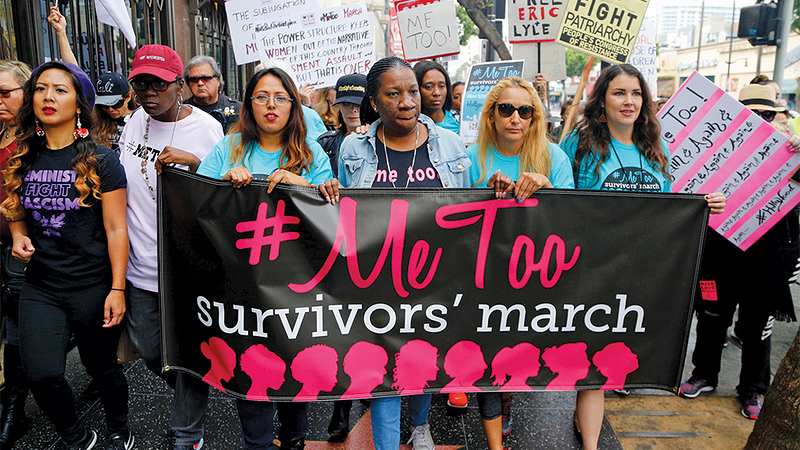At Open Space, the blog of SFMOMA, Momtaza Mehri reflects on #MeToo as an internet-driven movement, identifying both the power and the blind spots that this creates. Mehri observes that the movement tends to privilege experiences of sexual assault or harassment that can be related via social media. But what if, asks Mehri, one’s experience of sexual assault is hard to put into words, or difficult to relate through the clipped, short-form nature of social media? As powerful and necessary as #MeToo continues to be, Mehri suggests that its limitations as an internet-centric movement need to be acknowledged. Read an excerpt from the piece below, or the full text here.
This is a useful analogy for the celebrated resilience of survivors who achieve recognition only through sharing and recycling their pain. Resilience, like all performances, requires a participatory audience. James reminds us that the energy, or “surplus value,” spent in performing resilience is not reinvested back into human capital. Framed another way, what happens after we expose our wounds to the very institutions which injure us in the first place?
Resilience is often sold to us as a prescriptive tool. We assume it is the only way to be heard. A viral tweet or Facebook post replicates and regenerates itself. Retelling a traumatic event publicly through these means can provoke the kind of immediate reaction and solidarity that is at odds with the quotidian nature of sexual violence. This is a good but troubling thing. Such patterns can leave us wondering why strangers can often be more willing to believe us than the people we know and love offline. In any case, patriarchal domination reasserts itself by deciding upon the terms of engagement. Like all performances, resilience is measured against a hierarchical scale. This is how the mythology of the “perfect” harassment victim is created. The savvy and resourceful victim who most definitely wasn’t asking for it. Points are detracted every time a victim’s story doesn’t add up or follow this prearranged trajectory. Recognition isn’t meritocratic, to say the least. We see this in conversations around sexual harassment dominated by those in possession of the most human and financial capital.
Image via Variety.
